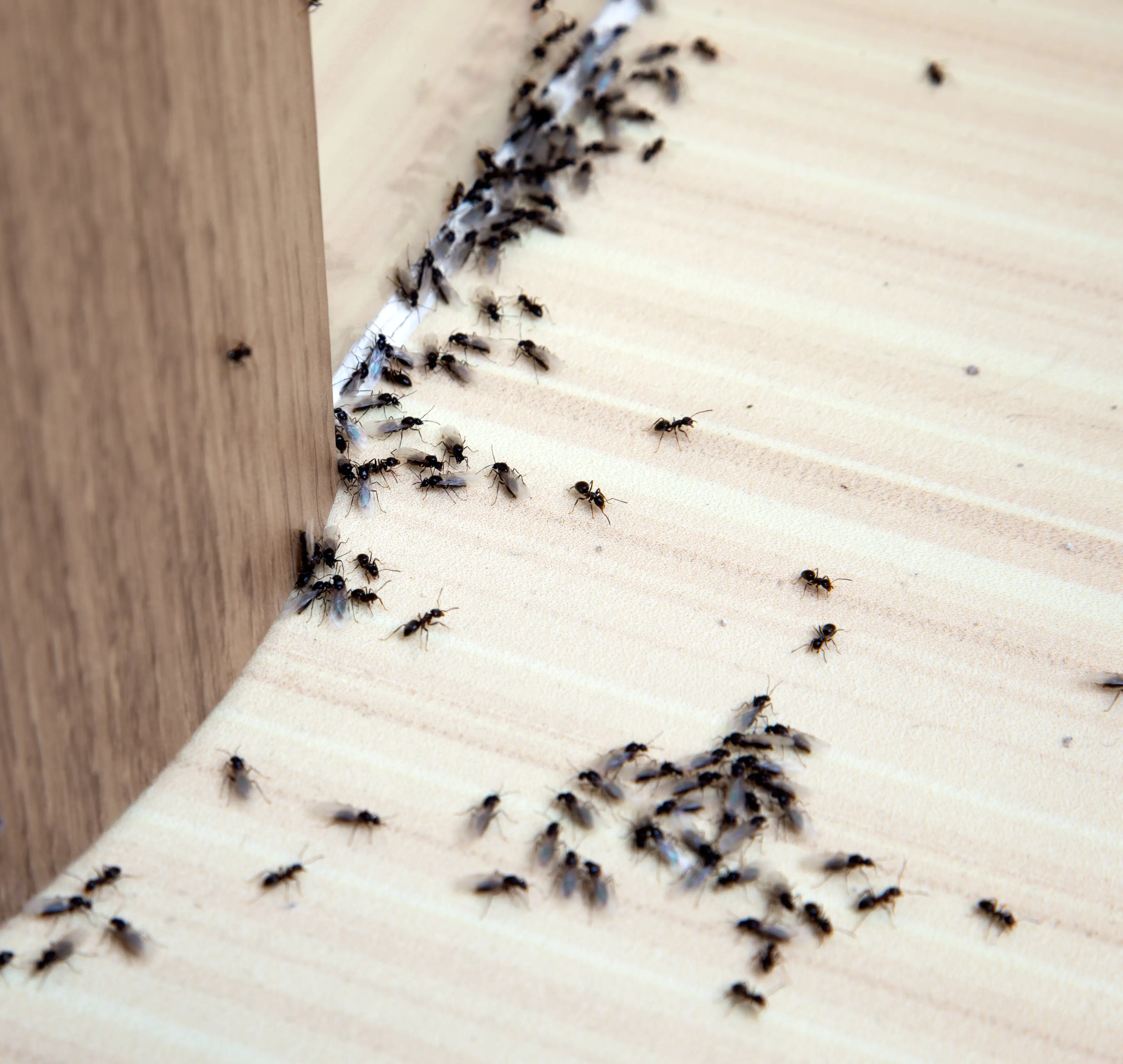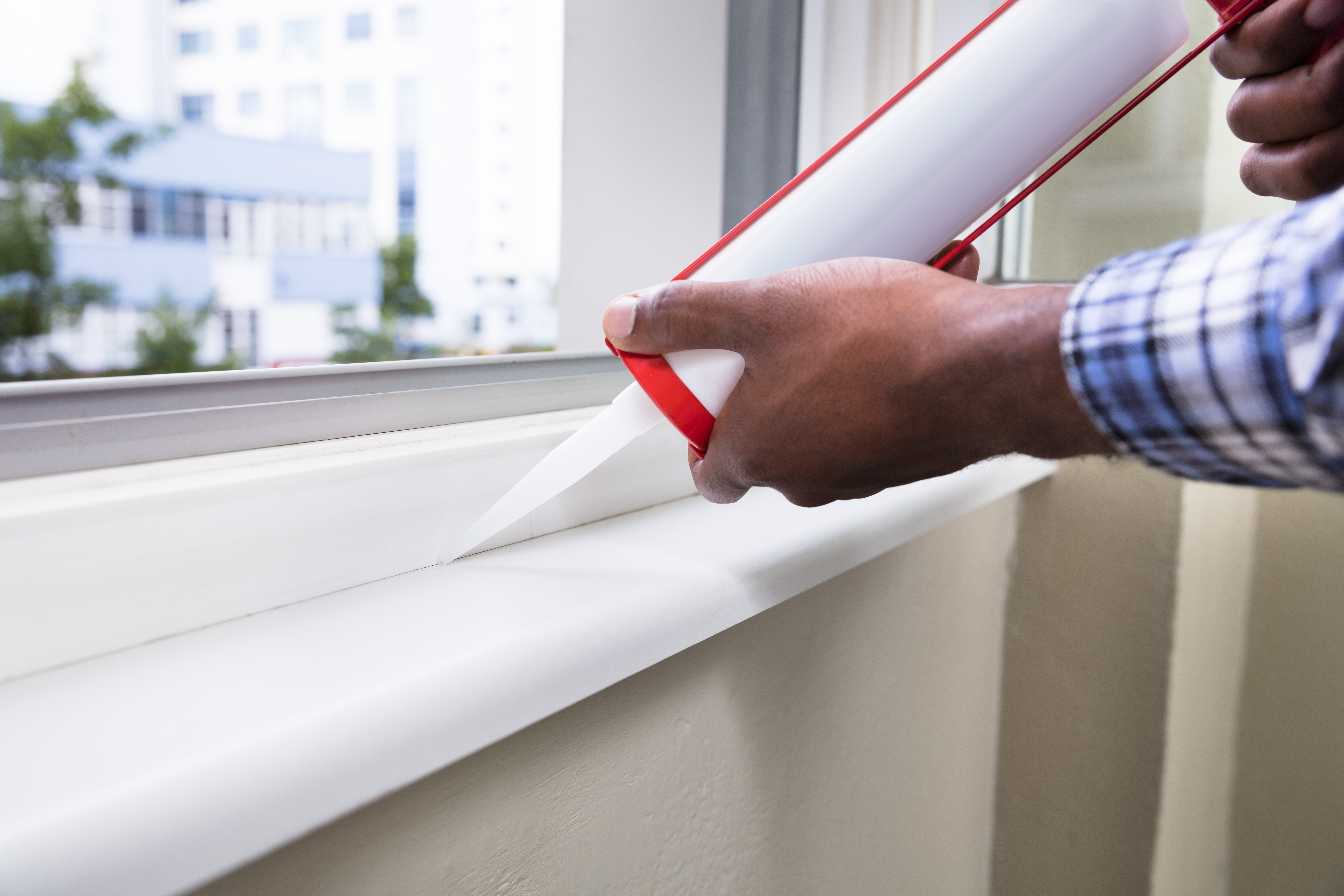
Many homeowners, regardless of where that home resides, deal with a universal problem. This problem is the action of bugs, specifically ants getting into your home and seemingly taking over. Ants usually get in through small cracks in the home, especially around the windows of your homes.
Caulk will prevent ants from getting into your home. Putting caulk around your window will give your ant problem a plug to keep it at bay. A good silicone-based caulk helps keep ants out and gives the windows a clean look. Caulk should be weatherproof and durable.
1: Choose your Caulk
The first thing that needs to be done is to find the best caulk to use for caulking the window. This might change based on if you are caulking outside or inside. Then again, it could be just as helpful to get the best caulk.
A good caulk is silicone-based and preferably weatherproof. This type of caulk will not break down as quickly and will help prevent ants for a longer period of time.
If the caulk is easy to wash off or clean with soap or water it is not a good caulk to use because any water that comes in contact with it will most likely compromise its integrity.
Good quality caulk can be found for as cheap as a couple of dollars and could be as much as 10 dollars. Caulk is generally really cheap and easy to get ahold of.
2: Check The Weather
Before you begin caulking, you should check to see what the weather is like in the time after you complete the caulking project. If there is any moisture expected in your area, then it would be a good idea to postpone the project. This is naturally only applicable if you are caulking outside.
Moisture can be detrimental to the setting up process of the caulk itself. It takes caulk roughly 3 hours to set and if water gets to it, it may not firm up correctly and it might cause holes in the caulk that allow ants to keep their access to your home.
Likewise, it might be good to keep caulk out of extreme heat as it is setting. This might cause it to set too quickly and crumble. Though depending on your quality of caulk this might not be a problem.
3: Find The Cracks

Next, it’s important to find all of the areas that you want to caulk. This will help you prepare for where you will caulk and it might speed up your process a little bit. Make sure to look in any area that might have a crack that ants could get into.
Check the trim of the window itself as well as where the window meets the trim itself. One good location to check that will most likely not be caulked is on the bottom trim of the window. Many people won’t caulk there because it’s not affected by the weather and no one looks under the window.
4: Prepping The Caulk
Before you start applying the caulk to these areas you need to prep the caulk. You need to have a caulk gun. Most caulk guns can be purchased at a hardware store or pretty cheap.
Also, caulk guns usually have metal pokers on them as well as a way to cut the tip of the caulk tube off. When cutting the tube the farther down you cut it will present a thicker bead of caulk when being applied.
Once cut, you will need to use the poker to puncture the foil down in the tube to gain access to the caulk itself. You can then put the tube in the gun and start to apply the caulk to the trim.
5: Applying The Caulk
Once you have cut the tube and put it in the gun you can start to put the caulk around the window, sealing up the cracks to keep the ants out. Here are some tips to make it the best you can.
The bead is the amount that comes out of the tube at any given time. You want the bead to be about the size of a pencil for normal trim caulking. Depending on the cracks in the trim it can be bigger, but the bead shouldn’t be too big.
Also, it is a good idea to start at the top and work your way down. This will make it easier on the arms and give a cleaner look. Make sure to apply the caulk evenly. The caulk at first will not want to stay very easily, so get the tube into the crack and allow the caulk to fill it in.
6: Using Your Finger
A majority of the time when caulking, the bead will leave a good amount as extra. A simple fix to this is to take your finger at the top, or the start of the bead and run it down to the end of the bead. This will spread the bead out and fill in the gap completely and then it will seal the ants out better.
Some people do choose to use other tools that spread the caulk, but it is more simple and effective to use the finger. Any extra caulk on the finger can be applied into new cracks or cracks that haven’t been filled in yet.
7: Clean Up
Once you have finished caulking the windows to keep the ants out it is time for you to clean up. If there is still caulk in a caulk tube, then you need to close off the tube in some way. Usually, a nail stuck into the tube spout will keep it airtight, depending on how big the cut is on the tube. If a nail doesn’t work then putting tape around the top can be a good alternative.
Next, you need to make sure that any caulk isn’t on your clothes or in any area that doesn’t need it. It is easier to get caulk out before it sets. Look carefully and start to get that out, often there will be instructions on the tube to getting caulk off.
8: Other Ways To Prevent Ants
Caulking is an effective way to keep ants out and caulking the windows is a good start. But you can also caulk other areas such as cracks on the inside of your house along baseboards. You can also look for other areas on the outside of your home where ants may get in and caulk those areas.
Another good way to prevent ants to use ant poison. This can be applied liberally outside your house in the grass or in flowerbeds that are close to the house. Also, poison pods can be placed around your house to get rid of ants as well.
